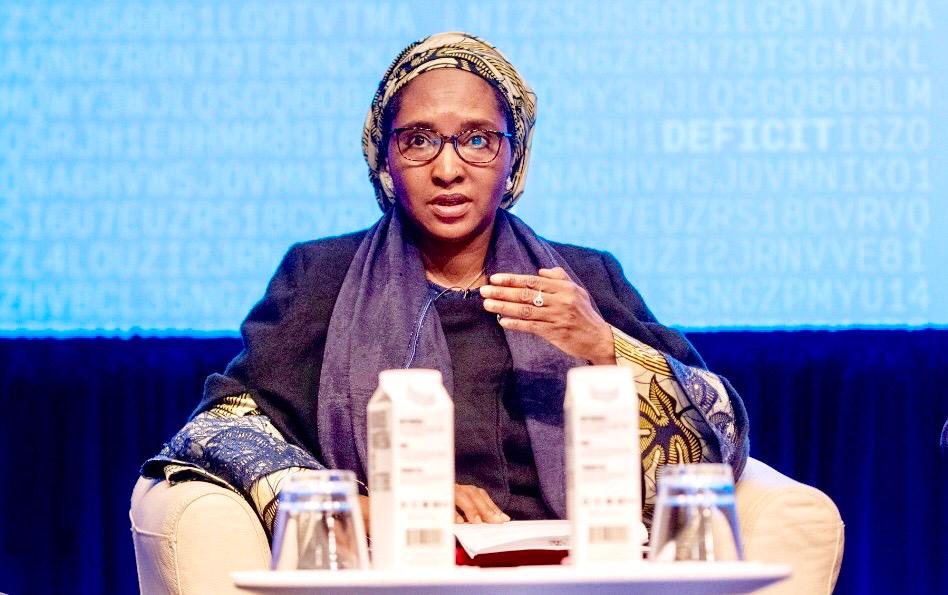How CBN, NDIC Kept Nigeria’s Economy Afloat Amid Socio-economic Challenges-Finance Minister

….NDIC liquidated 49 DMBs, 367 MFBs, 51 PMBs in 32 years
Minister of finance, budget and national planning, Zainab Ahmed has said the resilience of the nation’s financial system, led by the Central Bank of Nigeria (CBN) and Nigeria Deposit Insurance Corporation (NDIC) made the nation’s economy to stay afloat in the light of recent socio-economic challenges.
Speaking at a 3-day International Association of Deposit Insurers (IADI) Africa Regional Committee (ARC) technical assistance workshop, themed; “Normality in Turbulent Periods: The Stabilising Role of Deposit Insurers”, hosted by the NDIC in Abuja, the finance minister explained that the financial system stability across the globe and the social economic challenges are accentuated by the lingering effects of COVID-19 pandemic, Russian-Ukraine war, global supply disruptions and climate change challenges.
She noted that the Nigerian economy felt the brunt of the global economic distortion, having to go into recession twice in the space of five years. However, the minister said the resilience of the nation’s financial system enabled the country to exit recession within months.
“We also make bold to say that despite these economic challenges, no depositors’ fund was lost given the effectiveness of our agencies, most especially the CBN and the NDIC,” she said.
The finance minister said NDIC’s collaboration with the CBN in the efficient supervision of insured institutions has helped to promote sound risk management which reduces likelihood of failure and effective resolution of failing banks.
“All these have helped to improve public confidence, protect depositors and promote the stability of the Nigerian financial system,” she stated.
Mrs Ahmed said the negative impact of the global challenges on economic growth and financial sector stability in most economies of the world, raised a number of questions concerning the role of DIS in contributing to financial system stability, an area she said CBN and NDIC have distinguished themselves.
Also, speaking at the Workshop, the Managing Director/CEO of the NDIC, Bello Hassan said the NDIC as one of the resolution authorities in Nigeria, has adopted different resolution mechanisms in resolving the failure of distressed deposit-taking financial institutions in the country.
The liquidation activities of the NDIC involved 467 insured banks in liquidation, comprising 49 DMBs, 367 MFBs, and 51 PMBs, at end-December 2021.
According to him, the successes recorded by the NDIC in the execution of its mandate, would not have been possible without the strong support and collaborative efforts of other financial safety-net players in Nigeria like the CBN, the Federal Ministry of Finance, Budget and National Planning and other members of the FSRCC.
The Corporation is a member of the FSRCC, an inter-agency body set up to coordinate the supervision of financial institutions and deal with matters of common interest and concern to the various regulatory and supervisory authorities in the Nigerian financial services industry.
Presenting the goodwill message of NDIC’s Board of Directors at the Workshop, the Board Chairman of NDIC, Mrs Ronke Sokefun, noted that the stability of the global financial system is essential to economic growth, amongst other factors.
According to her, global economic growth continued to weaken, as indicated by the trajectories of many macroeconomic indicators. This weak performance was fuelled by the lingering effects of the COVID-19 pandemic and the truncation of nascent recovery from the pandemic-occasioned recession by the Russia-Ukraine war.
“Although the Nigerian banking system has shown resilience despite the challenges posed by the pandemic, the operating conditions for businesses are becoming more challenging as a consequence of the Russia-Ukraine war.
“Notwithstanding these developments, the Nigerian banking system remained healthy overall as the capitalisation level is above the prudential requirement and the Non-Preforming Loans ratio is also within the requirement at the end of second quarter 2022.”
She, however, pointed out that the NDIC has for a long time since its establishment in 1988 collaborated with other international standard-setters and deposit insurers.
“For instance, the NDIC has collaborated in capacity development with the IADI itself, the ARC members, the Financial Stability Institute, the US FDIC, the Islamic Financial Services Board and several other international agencies.
“Also, the Corporation has Memorandum of Understanding (MoU) to share information and on capacity development with deposit insurance agencies of Ghana, Poland, South Korea, Taiwan and Uganda”, she said.







